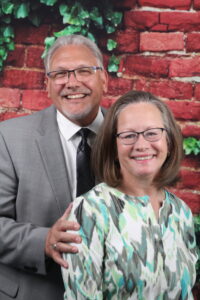In the most basic terms, prayer is the communication link between followers of Christ and the triune God. From the instruction of Jesus in Matthew 6, we talk to our heavenly Father, and we do this through the name and authority of Jesus. The apostle Paul in his letter to the church in Rome explains that the Spirit assists with our communication effectiveness, providing clarity of meaning and earnestness of intent (Romans 8:26-27).
Returning to the words of Jesus, he says that our Father knows our needs even before we utter the words. So, if this is the case, why pray? The analogy that works for me involves the relationship I share with my wife, Susan. On Sunday May 13, 1984, I told her I loved her and made a binding covenant of marriage in front of the preacher and gathered crowd. My stated love for her and desire to share life together has not changed in 41 years, however, to express my love and to share my love means that she and I actively interact and communicate. Hearing, “I love you” daily does not get old. This is what prayer is — active participation with the God we love and rely on.
I do not know about you, but I am one who utilizes my prayer time talking to God about my biological family and their needs. I want them to be healthy and to find fulfillment in this life. And now that I have grandkids, my list of desires grows even longer. To avoid getting into a one-track mindset of seeking God as a protector and provider for the welfare of my family, I find the first three petitions of the Lord’s Prayer to bring me around to a more God-centered robust prayer life. “Hallowed be thy name, thy kingdom come, and thy will be done.”
















 By Cara Garrity, Development Coordinator
By Cara Garrity, Development Coordinator
